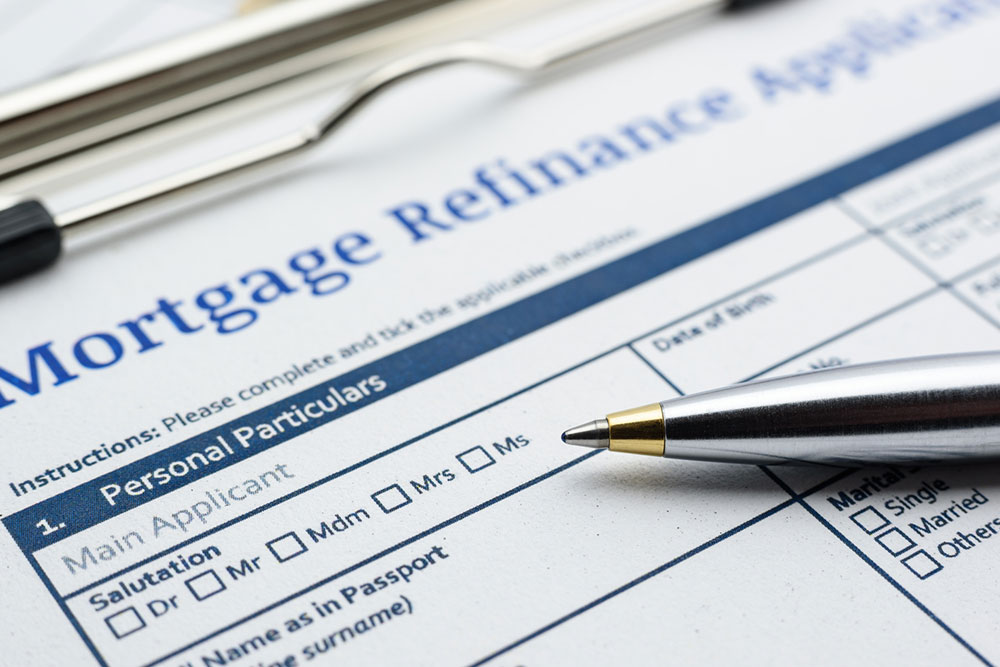6 reasons to refinance a mortgage

Many homeowners consider mortgage refinancing a viable option to save money. However, whether refinancing a home is a good idea or not generally depends on several factors. These include the current interest rates, the period of time a homeowner plans to live in that house, and how long it will take to recover the closing costs. Considering these and understanding the different factors of this financing option can help one make an informed decision.
What is mortgage refinancing?
Generally, refinancing is a process where a homeowner replaces a preexisting mortgage with a new one. With refinancing, the new loan term comes along with a new interest rate and a new lender in most cases.
Refinancing is a useful option to lower the interest rate, change the loan type, shorten the loan term of the current mortgage, or reduce the monthly payments. Another reason why a homeowner might opt for refinancing is to cash out a percentage of the home equity to pay for renovations and repairs. However, not everyone is eligible for refinancing. To qualify, a homeowner needs to have a good credit score and a reliable credit history, enough equity in the home, and manageable debt obligations.
Reasons to choose mortgage refinancing
To lower monthly payments
When interest rates decrease after homeowners get their original mortgages, refinancing into a loan with a lower rate might be a good idea. This can help reduce monthly payments and the overall amount paid over the life of the loan.
However, if a homeowner expects a decrease in their income, they may want to extend the loan term so that they can pay off the loan gradually by making smaller monthly payments. In such cases, one will have to be prepared to pay interest for a longer period of time .
Credit score has improved significantly
If one’s credit score has improved significantly, it is a good idea to apply for refinancing that offers better interest rates. For instance, depending on the terms of the original mortgage, even a 20-point increase in the credit score can bring down the rates low enough to save thousands of dollars. This is why frequently monitoring the credit score is always recommended, especially if one has been trying to improve it. One can easily boost one’s credit score by making timely payments to consumer bills and reducing overall credit utilization. Paying off all pending debts can also help improve credit scores.
The end of the fixed period on adjustable-rate mortgage
Adjustable-rate mortgages, or ARMs, are generally useful for saving money on monthly mortgage payments during the early years of owning the home. This is because the rates are lower at the beginning for a fixed period of time . However, the interest rate might increase slightly once the fixed period is over. A homeowner can avoid paying this extra rate by refinancing the ARM with a fixed-rate mortgage. It is important to note that the fixed rate of the new mortgage might be a bit higher than the original adjustable rate. Nevertheless, the fixed rate will be more beneficial because it offers protection from further increases in the rate that may occur in the future.
Switching to a shorter loan term
Sometimes, refinancing a loan by changing its term can be beneficial. This is particularly applicable to homeowners who can afford a higher monthly payment plan. For instance, if there has been an increase in income, one can refinance into a loan with a shorter term, like switching from a 30-year fixed-rate mortgage to a 15-year mortgage. This way, one can pay off the loan faster and save thousands of dollars in interest payments for the rest of the loan term.
Opting for cash-out refinancing
Cash-out refinancing allows a homeowner to borrow and use the equity they have built on their home. Generally, this cash is reinvested back into the house for repairs, remodeling, or renovations, which can increase the overall value of the house . Besides this, cash-out refinancing can be helpful in emergency situations where extra funds are required to pay for medical bills or education loans. Also, note that cash-out refinances have higher interest rates due to the increased risks for lenders. Yet, it has been observed that the interest rate is still better than the current loan that a homeowner has, particularly when the interest rates have dropped, or the homeowner’s credit score has improved since they first obtained their original mortgage.
The debt has to be consolidated
Refinance is also a good option to consider when one has several other high-interest loans and debts to pay. This includes student loans, credit card debt, and a second mortgage. In this situation, one can opt for a debt consolidation refinance, which works similarly to a cash-out refinance. A portion of the home equity is liquidated into cash, which can be used by the homeowner to pay off other debts and loans. To do this , the current mortgage has to be replaced by a new one that includes the total amount of money that was taken out to repay the debts.